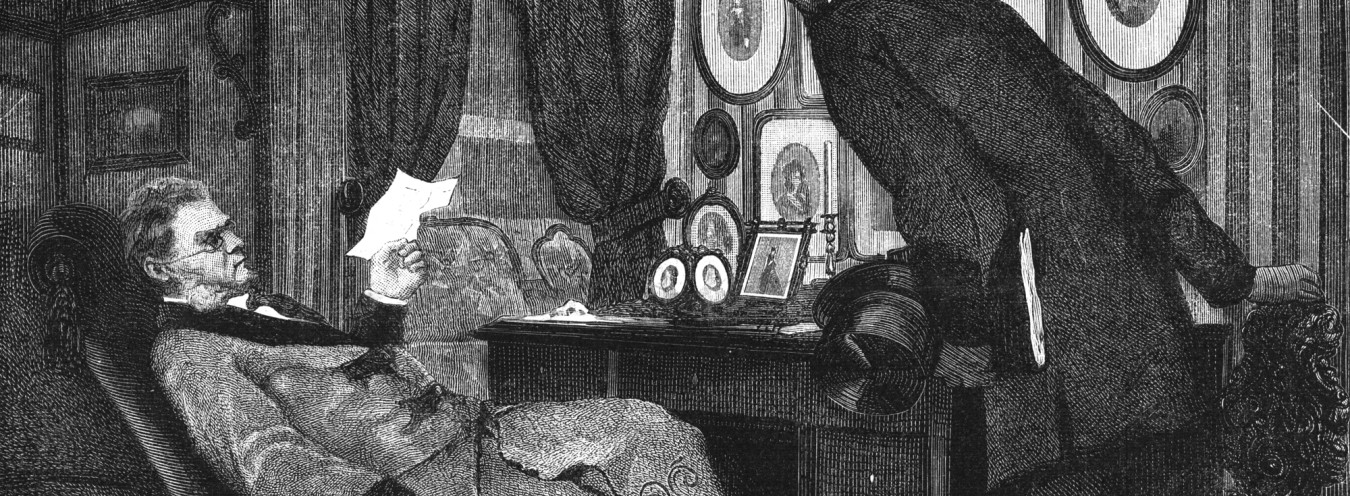
Łęcki, Tomasz
Mr Tomasz Łęcki […] wore a small white moustache, his hair was white and brushed upwards. He had grey, understanding eyes, an upright posture and walked briskly. People made way for him in the street, and simple people said: ‘He must be a real gentleman.’ (32)
This impoverished gentleman from an old family with great traditions does not own land, which is the basic source of income for the gentry. It’s possible that he has squandered it, but it could also have been taken away from the family during the Tsarist repressions after the January Rising (1863). Used to reckless spending, he has lost his family fortune. In The Doll, he sells the last source of regular income – the tenement house. He is incapable of working for wages, and he would anyway never agree to such a disgrace to a gentleman’s honour. As a result, he keeps his house on the high level the family is used to and gets into more and more debt. The character of Tomasz Łęcki as constructed by Prus does not seem to be aware of the future consequences of his reckless financial decisions. At a closer look, however, one can easily see that these are just well-kept appearances. This seemingly frivolous profligate can cynically exploit other people: he wins at cards without cheating (Wokulski eagerly helps out the father of his love interest), he manages his debtors, and he exhorts extraordinarily high interest on the capital obtained from the sale of the house. Despite the rumours concerning his bankruptcy, he manages to regain his high social position, slyly assuming the role of the co-founder of the aristocratic-bourgeois trade company, a business he has no idea about: [Tomasz Łęcki] drew Wokulski aside, and once again asked him about the aim and significance of the partnership, to which he already belonged heart and soul, though he could never remember quite what it was all about.
Prus endowed Tomasz Łęcki with a flair for the game of appearances. His expression was always so tranquil, his attitude so haughty. He can be read as an embodiment of a naïve profligate, who yields to capricious fate, yet such a reading would be an oversimplification. He should be rather seen as a master at self-deception: he truly believes in the authenticity of all his assumed poses and is convinced that his aristocratic heritage and social position entitle him to get more from life than other people. His egocentric attitude is reflected in the strange notion that occurs to him at the sight of the elegantly dressed Wokulski: Wokulski was a parvenu who ought to pay him at least fifty per cent on the capital lent him, in return for the right to wear a white top-hat. Łęcki becomes a buffoon: he condescendingly looks down at others either with contempt or with sympathy, and simultaneously he is very lenient towards himself and easily finds excuses for his own self-indulgence. All his schemes fail because of Izabela’s thoughtlessness and her flirting with Kazimierz Starski in front of Wokulski. The tradesman breaks off the engagement, the company goes under, and Łęcki loses his social position and dies of apoplexy. The character of Tomasz Łęcki is an accomplished, slightly satirical portrait representative of the declining Polish gentry at the end of the nineteenth century. He is an aging gentleman, a species threatened with extinction, incapable of adapting to the new economic situation, respecting out-dated social manners and views. In the novel, Prus ruthlessly ridicules Łęcki’s conduct and the values cherished by him.
→ Money; → Trade Partnership; → The Gentry;



